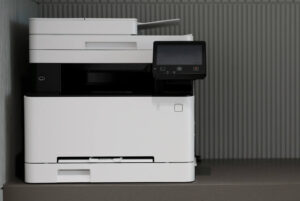It’s amazing how quickly things go from “the next big thing” to “seriously, I spent money on that?” While your old iPod or computer could become a vintage must-have, the same can’t be said of outdated admin practices. It’s time to wave goodbye to methods from days gone by and herald the New Year with smarter ways to tackle your surgical scheduling workflow.
Couriers
Unless you are sending something big and bulky, we suggest you lose the number of your local courier company. Don’t waste time – and money – using a courier to transfer files between your practice and ASCs. Sending files electronically will help you save resources, and better protect patient information.
Whiteboards For Tasks

Whiteboards are great for sharing information with everyone at the practice, but they’re also a PHI disaster-in-waiting. Your patients expect their information to be kept private and confidential. Spare everyone the billboard and move to an electronic dashboard.
Empty Block Time
Pens, calendars, and an endless supply of Wite-Out make it hard to keep track of cancelled surgeries and fill empty slots. With all the digital tools and software available for surgical practices, there is no excuse for block time going unused.
Surgical practices and the broader healthcare industry waste too much money. Creating an electronic workflow gives practices the flexibility to plan better and keep operating rooms running at full capacity.
Fax Machines

The ‘90s just called and they want their fax machine back. In the era of email and messaging, it’s no surprise the fax machine has gone the way of the Dodo.
That said, plenty of practices still use them, either out of habit or because hospitals and insurance companies demand them. Though cumbersome and expensive, faxes are still a common sight in the back office.
Worst of all, unlike secure email programs or HL7 protocols, faxes are susceptible to HIPAA violations, which should be a big red flag. Try avoiding sending faxes when not absolutely necessary.
Sorting One-by-one
Some practices still work this way. Insurance approvals, for instance, are processed patient-by-patient and can become a full-time job. It’s quicker and easier to track if you start by grouping patients by insurance carrier through a surgical checklist, then call each carrier and process all the patients in one go.
Manual Paperwork

Surely, we have evolved enough to realize that manually creating and filling in forms is daft. Forget about the reams of paper wasted in keeping things status quo, and consider the time squandered creating and filling them in. Embrace the future by using a form generator to save your admin staff hours of valuable time and let them focus on more important things.
Manila Folders

For most people, a folder lives on their computer, but some practices still run their back office with actual Manila folders and files. Not only is this method of record keeping tedious and inefficient, but it also makes it hard to find information when needed.
This is especially true for practices that use old files daily that were never scanned into their system. Filing is costly, takes up valuable space, and makes the office look cluttered. Switching to a near-paperless system saves time, money, and frayed tempers when things go missing.
Paper Calendars
Even though some people still prefer to look at a calendar, they can feel that using paper calendars has serious disadvantages. If one goes missing, the surgeon’s schedule can be thrown into disarray.
Manage appointments with a shared electronic calendar solves this, as everyone needs to access it easily, and you’re not dependent on one person to update and maintain it. Plan for the inevitable and make the switch.
Sticky Notes

Everyone loves sticky notes. They’re great for jotting down quick reminders and capturing thoughts. But the problem with your colorful friends is they harm your ability to keep track of information, and, worst of all, they increase the risk of HIPAA violation. There are many task tools and apps available online that you can use instead.
Wall Calendars
Wall calendars are great for tracking your kids’ activities. They are less good at tracking a complex roster of surgeries and appointments. Accessible only to those physically in the office, wall calendars are difficult to update and maintain. They’re on display for anyone to see or photograph, which earns them a big black mark for HIPAA violation.
So keep the colored pens for arts and crafts class and use an electronic calendar that keeps everyone in the loop and your patient information secure.
- Sari Nossbaumhttps://www.surgimate.com/author/sari/
- Sari Nossbaumhttps://www.surgimate.com/author/sari/
- Sari Nossbaumhttps://www.surgimate.com/author/sari/
- Sari Nossbaumhttps://www.surgimate.com/author/sari/




